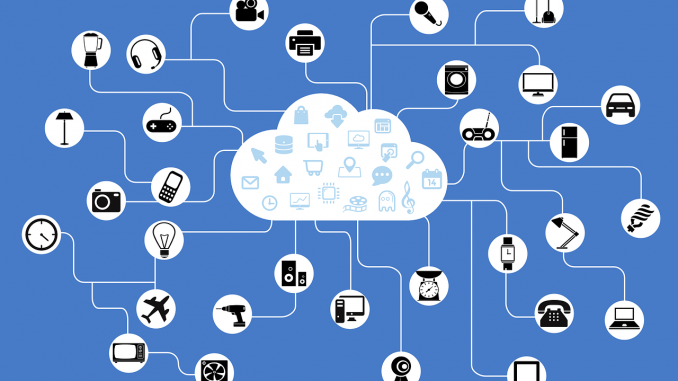
Introduction
With the development of science and technology, more and more ways have allowed us to access the Internet in recent years. The story of the Internet continues to affect people’s lives, and it is becoming more convenient and faster to transmit information. The Internet has accelerated the speed of information circulation, significantly improving the convenience of information acquisition and the richness of channels. On the Internet, regardless of region, age, gender, race, class, color, education, wealth, etc., everyone can freely obtain all kinds of information or resources they want. Of course, there will also be some structural biases on the Internet that affect modern digital culture. For example, Turner’s discussion on the continuity of Internet culture is mainly about class, gender, and racial discrimination. The article said that the culture is still dominated by whites, men, and the middle class. He advocates a “brother culture”, excludes minorities, and pays attention to racial inequality within Silicon Valley. It will strengthen racial and sex discrimination and deepen people’s stereotypes because of the Internet’s search engines (2021). The structural prejudice of the Internet affects modern digital culture. Discrimination is aimed at a specific disadvantaged group or individual. Due to identity classification, such as race, gender, unfair, harmful, and exclusive treatment is given. In this article, I will argue that the Internet has seriously affected this structural inequality, mainly from the perspectives of racial discrimination, gender discrimination, and social status, to discuss whether the Internet will aggravate this structural inequality.
Sexism and language attacks

The first thing to discuss is whether the Internet has deepened sexism. Some sexists make offensive and abusive comments on women on the Internet. The audience has been paying attention to race and gender issues in the past few years. ( Max Goldbart,2020) This can be regarded as a severe structural inequality because it is a kind of prejudice. Safiya U. Noble is the author of “The Algorithm of Oppression: How Search Engines Reinforce Racism”. She mentioned in the book that if you enter a black girl in Google, a lot of sex-related information will pop up. However, it is not only black girls who are biased in search engines; search engines are biased against Asian girls, Latino girls, and even white girls. (2018). Due to the open-source nature of Internet software, software users can spread hate speech on the platform, which cultivates the power to strengthen racism, hegemonic ideology, and prejudice for those who have the skills and opportunities. The gap created between them reflects that the identity and image of women are commercialized on the Internet. This inherent unequal structural bias affects modern digital culture, such as the search engine Google, which Google calls a kind of commercialization. The company can monopolize information intervention based on the prioritization of search results on various topics. And according to Rebecca, Amazon tried to use artificial intelligence to build a resume screening tool a few years ago. It hopes that technology can make the job application classification process more efficient. It uses the resumes collected by the company over the past ten years to build a screening algorithm, but These resumes often come from men. This means that the system eventually learned to discriminate against women. (2020) These can also indicate that the screening algorithm discriminates against women, so it can show that the Internet has deepened gender discrimination, making women feel anxious and inferior about their skin color, age, and even body shape. It is even more challenging to find a job. Therefore, gender discrimination and screening bias on the Internet has exacerbated structural inequality on the Internet.
Racism

Racial discrimination has always been an issue of concern to everyone. Artificial intelligence systems have discriminated against minorities in recent years, including facial recognition systems that cannot identify women or African-Americans and brown people. Or opaque, unimplementable, and discriminatory recruitment algorithms, etc. UN News described a case in January in which an African-American in Michigan, USA, was arrested for unknowingly shoplifting. He was detained after being handcuffed in front of his family. This is believed to be the first false arrest: Trusted facial recognition AI-related police arrested their people, but the tool did not learn how to recognize the difference between black faces because the image was used to train it for primarily white faces. (2020) This can also show that it is not entirely correct for people to rely too much on artificial intelligence. It is mentioned that artificial training intelligence is primarily white faces, showing that racial discrimination exists in artificial intelligence. And governments and federal agencies are also aware of how artificial intelligence and technology can exacerbate racial and other inequalities, such as blacks, women, and other marginalized groups. (ALCU, 2021) With the recruitment announcement about search engines offering high-paying technical jobs to men rather than women, As stories about search engines that are more inclined to provide men with high-paying jobs or provide arrest photos when entering keywords such as “black teenagers” have surfaced, allegations of racism and sexism have become entrenched. This discrimination problem will deepen his structural inequality because of the Internet. For example, in UN news, artificial intelligence errors will harm African Americans. So the Internet has deepened structural inequality.
Class inequality
The last one is the issue of class. The Internet typically widens the cognitive gap between people at different levels. Due to the convenience of the Internet, it also has adverse effects. A large number of false information and spam have become the norm. Since it is very convenient to publish information now, everyone has become an information maker, so it is impossible to distinguish the essence and truth of the matter because there is a large amount of information now. And because of the “guess you like” algorithm of AI, it will widen people’s cognitive gap. For example, a newspaper will not report a specific piece of news for you because of your subjective preferences. He will broadcast the word in a comprehensive manner, such as national events and entertainment news. But with the AI algorithm, the information people receive is more subjective, and they will send you messages according to your preferences. Hence, the information received on the Internet becomes more and more limited. Therefore, the difference in the information received by people at different levels is getting broader and broader, and the resulting cognitive gap is getting bigger and bigger. Therefore, the Internet will widen the mental gap between people at different levels, which has deepened structural inequality.

In the conclusion
The gender discrimination, racial discrimination, and class issues mentioned in the article show that the development of the Internet is primarily affected by structural inequality. Due to the wide variety of information on the Internet, people cannot fully distinguish the authenticity and reliability of the data. I hope everyone can think independently, have a certain degree of curiosity about things, and don’t always lock themselves in their cognitive circles. And expect that the Internet can reduce discrimination against gender, race, and class and adjust the AI algorithm.
- ACLU News & Commentary. (2021). Retrieved 17 October 2021, from https://www.aclu.org/news/privacy-technology/how-artificial-intelligence-can-deepen-racial-and-economic-inequities
- Bias, racism and lies: facing up to the unwanted consequences of AI. (2021). Retrieved 17 October 2021, from https://news.un.org/en/story/2020/12/1080192
- Howard, A., & Borenstein, J. (2018). The Ugly Truth About Ourselves and Our Robot Creations: The Problem of Bias and Social Inequity. Science and Engineering Ethics, 24(5), 1521–1536. https://doi.org/10.1007/s11948-017-9975-2
- Lusoli, Alberto, and Turner, Fred (2021), ‘“It’s an Ongoing Bromance”: Counterculture and Cyberculture in Silicon Valley—An Interview with Fred Turner. Journal of Management Inquiry 30(2), pp. 235-242.
- Max Goldbart. (2020). Ofcom outlines rising racism and gender complaints. Broadcast.
- Noble, Safiya U. (2018) A society, searching. In Algorithms of Oppression: How search engines reinforce racism. pp. 15-63. New York: New York University
- Rebecca, H. (2020). Why algorithms can be racist and sexist. Retrieved 17 October 2021, from https://www.vox.com/recode/2020/2/18/21121286/algorithms-bias-discrimination-facial-recognition-transparency